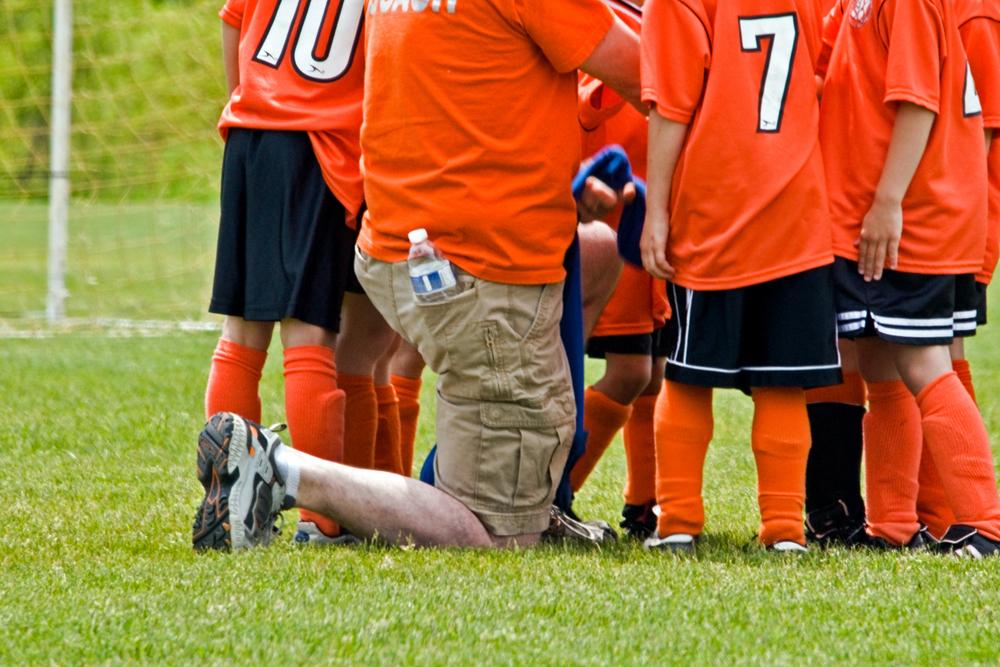By Roberta Kraus, Ph.D., President of the Center for Sports Psychology
 In the eyes of most parents and coaches, competing just for the love of the game is not reason enough to play sports.
In the eyes of most parents and coaches, competing just for the love of the game is not reason enough to play sports.
How long has it been since you asked your child after a game that you could not attend, “Did you have fun?” or “What did you learn?”
All too often it is instead “Did you win?” or “How did you do?”, which translates to “How many points did you score?”, “How many goals did you stop?”, “Did you make all your free throws?”, and “How much playing time did you get?”
Today’s young athletes are viewed as an inherent measurement of a coach’s, school’s or athletic program’s success. Schools, coaches, parents – and to some extent even the athletes – tend to only “treasure what they can measure.”
Some experts suggest that an overwhelming majority of parents would rather have their child sit on the bench of a winning team than play on a losing team. But when the young athletes of these same parents are interviewed, their views tend to be overwhelmingly the opposite; most of these young athletes would rather play on a losing team than sit on the bench of a winning team!
This discord between the roles of coaches and parents is creating negative effects in youth athletes and in the culture of youth sport as a whole.
The Effects of Negative Coaching and Parenting
Frequently you hear about the violence in youth sports and the negativity it brings out in people. Negative coaching from the sideline is becoming more and more the accepted norm for behaviors in the stands and is sending a misguided message to the young athlete: “the ‘real’ coaches are in the stands and know more than my coach.” But in various coaching surveys, coaches identify criticism and constant negative feedback from parents and themselves as the most damaging influences for a young athlete, followed by competitive pressure of the game itself.
Although children receive benefits from participation in competitive sports, they often experience negative feelings such as low self-esteem, aggressive behavior, and excessive anxiety. These symptoms can develop from receiving negative messages (both verbal and nonverbal) or aggressive behavior from the “sideline coaches” – the parents. Young athletes’ self-perceptions and motivations are significantly related to the quantity and quality of feedback they receive for their successes and errors.
The Antidote for Negative Coaching and Parenting
To prevent these negative effects, parents, especially with children under age 14, should de-emphasize the importance of winning while also encouraging them to give a strong effort (the only thing the athlete can control) and to play a variety of sports.
In the long run, kids develop and reinforce the behaviors they give the most attention to. It has been shown that coaches and parents who exhibit more positivity than negativity are better liked, respected, and have athletes who work harder and perform better.
All parents of young athletes need to remember that if outcomes were the only measure of success, then most athletes would be failures. The next time your young athlete competes, manifest in them that a positive attitude, enthusiasm, and a love for the game are the attributes of a true champion. If there is one thing we know about human behavior, it’s that we participate in and do our best at what we like, and avoid and do poorly at what we don’t like.
Guidelines On What Not To Do When Coaching Youth Athletes
To help cultivate a healthy attitude toward sports and competition in your young athlete, simply keep the following guidelines in mind:
- DON’T forget that all those wonderful lessons about life, courage, teamwork, and maturity that you believe sports have to offer your child can also be learned by being part of the school band, as a member of the drama club, or by being on student council. Sports are not for everyone.
- DON’T be a sideline critic at the child’s game.
- DON’T try to re-live your athletic life through your young athlete in a way that creates negative pressure.
- DON’T forget that as kids get older, priorities can and will change.
- DON’T forget that no matter how tall, how big, how fast or even how skilled your child gets in sports, they are still just a kid and deserve to behave like one.
Further reading and bibliography
Kirshenbaum, Daniel, Director of the Center for Behavioral Medicine and Sports Psychology in Chicago.
NCYS – National Council of Youth Sport Official Publication, Volume 6, Issue 3, May/June 2001
Ottewill, Bob. Winning or Losing Not Correlated with Kid’s Value. Colorado Interscholastic Magazine, April 1998.
Sport and Exercise Psychology, 1992, volume 1, 59.
The Medical Tribune News Service, August 24, 1999.
Wolk, Alexander. The American Athlete. Sports Illustrated, October 6, 2003.
Roberta Kraus, PhD. is a Sports Psychologist for the Center for Creative Leadership who designs mental training programs that improve peak performance, team leadership, group dynamics, communications, and motivation.



